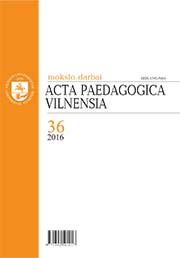Challenges of Applying Competence-Based Learning in Higher Education
Challenges of Applying Competence-Based Learning in Higher Education
Author(s): Rimantas Želvys, Aliya AkzholovaSubject(s): Higher Education , Behaviorism, Transformation Period (1990 - 2010), EU-Accession / EU-DEvelopment
Published by: Vilniaus Universiteto Leidykla
Keywords: Bologna process; competence-based approach; higher education;
Summary/Abstract: The article analyses the challenges of applying competence-based learning in higher education. The international project “Tuning Educational Structures in Europe” makes a distinction between the learning outcomes and competencies and urges to revise all the study programs in accordance with the requirements of the competence-based approach. However, Western researchers, in particular the representatives of critical pedagogy, point out a number of controversies concerning the competence-based education. There is no commonly agreed definition and structure of a competence. Its ideological basis is neo-liberalism and new public management; it relies on behaviorism and is an excess fully mechanistic and reductionist. A competence based approach could be considered as an attempt to make higher education institutions more standardized, comparable, accountable and cost-effective. Still, others find no sound evidence of the effectiveness of competence-based learning. On the other hand, in post-socialist countries, a competence-based approach was taken for granted as an undisputable attribute of a modern higher education system. The article concludes that the competence-based approach can be useful if we intend to analyses this model more deeply and thoroughly and are ready to consider all its advantages and shortcomings
Journal: Acta Paedagogica Vilnensia
- Issue Year: 2016
- Issue No: 36
- Page Range: 9-17
- Page Count: 9
- Language: English

